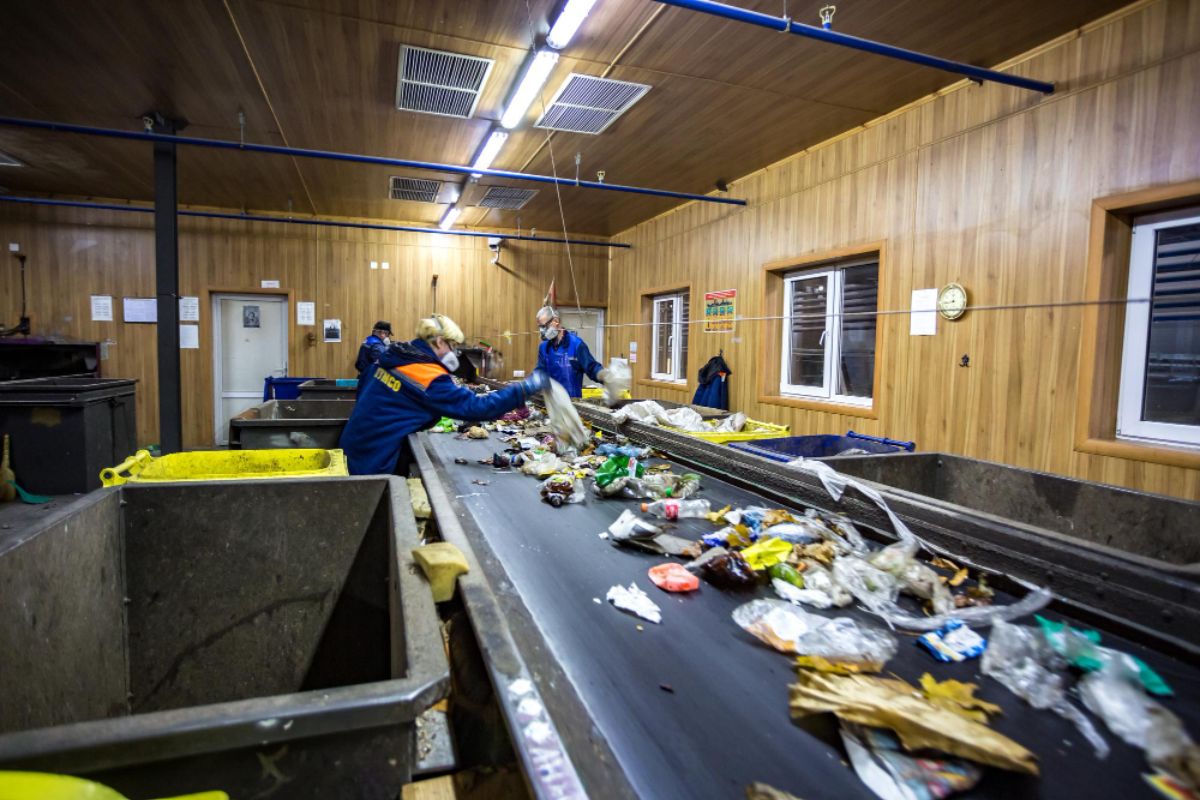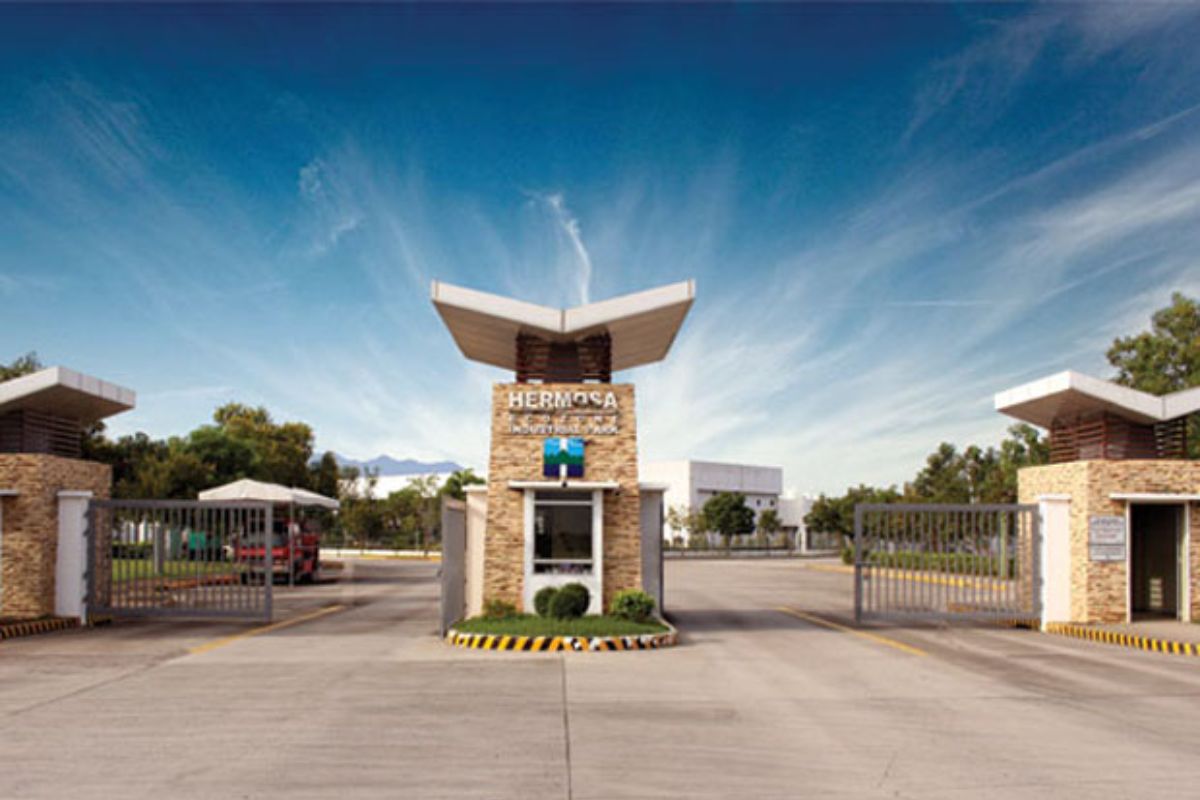How does waste management help with an industrial park’s efficacy?
- Increased efficiency and productivity
- Cost reduction
- Enhanced safety and health
- Environmental sustainability
- Risk mitigation
Overview
- Effective waste management leads to cleaner work environments, reduced reliance on raw materials, and lower disposal costs.
- Strict waste management practices mitigate pollution by preventing harmful materials from entering the environment. This safeguards public health, reduces the risk of accidents, and protects ecosystems.
- Proper segregation and recycling decrease landfill fees and generate income from selling recyclable materials.
In today’s world, success isn’t just measured by productivity – it’s also defined by sustainability. For industrial parks, a key factor in achieving long-term success lies in implementing effective waste management practices.
Here, we’ll learn how waste management helps with industrial parks’ efficacy. We’ll explore how responsible waste practices minimize environmental impact, ensure regulatory compliance, and even promote cost-saving opportunities.
Increased Efficiency and Productivity
Effective waste management offers a powerful one-two punch for businesses: increased efficiency and significant cost savings. Implementing proper disposal systems and organizing waste collection can create cleaner, less cluttered work environments. This translates to smoother workflows and improved employee navigation, minimizing downtime and boosting overall productivity.
Furthermore, waste management goes beyond just keeping things tidy. By promoting resource conservation and recycling efforts, businesses can reduce their reliance on raw materials and minimize disposal costs. This not only contributes to a more sustainable operation but also ensures a steady supply of resources, preventing disruptions and ultimately boosting productivity. In essence, effective waste management creates a win-win situation for both the environment and the company’s bottom line.
Cost Reduction

Out of the estimated 6,700 tons of waste generated daily, only around 720 tons are recycled or composted. The remaining staggering amount – roughly 6,000 tons – faces a grim fate. This waste is either dumped in landfills, illegally disposed of on private land or waterways, or openly burned, further polluting the already burdened air.
Efficient waste management transcends mere disposal. It entails a strategic approach, starting with the identification and segregation of recyclable materials. This practice significantly reduces landfill usage, resulting in tangible cost savings on disposal expenses. Moreover, recycling converts waste into valuable resources that can be monetized, creating an additional revenue stream for the park. This financial influx serves to offset the overall expenses associated with waste management, fostering a more sustainable economic framework for long-term viability.
Moreover, smart waste management practices enhance resource efficiency in industrial processes. Waste audits identify areas where raw materials are wasted, like inefficient production or storage. Addressing these boosts efficiency, cutting material costs, and improving financial health.
Enhanced Safety and Health
Industrial parks play a crucial role in economic development, but their operations can also pose environmental and health risks. However, by implementing strict waste management practices, these parks can significantly reduce these risks and create a safer, healthier environment for everyone involved.
One key benefit of effective waste management is the mitigation of pollution. Proper disposal methods prevent harmful chemicals, toxins, and pollutants from entering the air, water, and soil. This not only safeguards public health by reducing the likelihood of illnesses and water contamination but, also protects the surrounding ecosystem from soil degradation.
Additionally, efficient waste management systems ensure the safe handling and disposal of hazardous materials commonly used in industrial settings. Strict adherence to regulations minimizes the potential for workplace accidents like chemical spills or fires, protecting the safety of both workers and nearby residents.
Environmental Sustainability

While ensuring immediate safety is crucial, responsible waste management offers a broader set of benefits for industrial parks. Effective waste reduction and recycling initiatives minimize the amount of trash going to landfills, thereby conserving precious natural resources. Additionally, these initiatives require less energy for processing and transporting waste. This holistic approach translates to a healthier environment for everyone involved, from employees and residents to the surrounding ecosystem.
Proper waste management, including recycling and safe disposal, reduces pollution by minimizing harmful substances released into the environment. Additionally, it conserves resources by recycling materials and converting waste to energy, reducing the need for new resources and lessening the strain on ecosystems.
Beyond environmental benefits, adopting sustainable waste management practices can enhance the reputation of industrial parks. This attracts environmentally conscious investors and customers, fostering a culture of shared responsibility.
Risk Mitigation
Proper waste management practices are crucial for protecting the environment surrounding industrial parks. By minimizing the release of harmful pollutants, these practices significantly reduce the risk of soil, water, and air contamination. This has a ripple effect, ensuring a safer and healthier environment not just for the industrial park itself, but also for nearby communities and ecosystems. In essence, responsible waste management fosters a more sustainable future for all.
Beyond environmental benefits, adhering to waste management regulations and standards offers significant financial advantages for industrial parks. By implementing efficient waste management systems, industries can ensure compliance with environmental laws, effectively reducing the risk of hefty fines and potential legal battles. This not only saves money but also protects the reputation of the park and the businesses operating within it.
Key Takeaway
This is how waste management helps with industrial parks’ efficiency. By minimizing pollution, adhering to regulations, and promoting resource recovery, waste management helps industrial parks operate more sustainably, cost-effectively, and with a reduced risk of legal issues. This creates a win-win situation for businesses, the environment, and surrounding communities.
Join us at Science Park of the Philippines, a leader in private industrial estate development, and be part of a community dedicated to responsible environmental practices. Our commitment to effective waste management ensures a cleaner future for all. Contact us today to learn how your innovative business can thrive with us.



